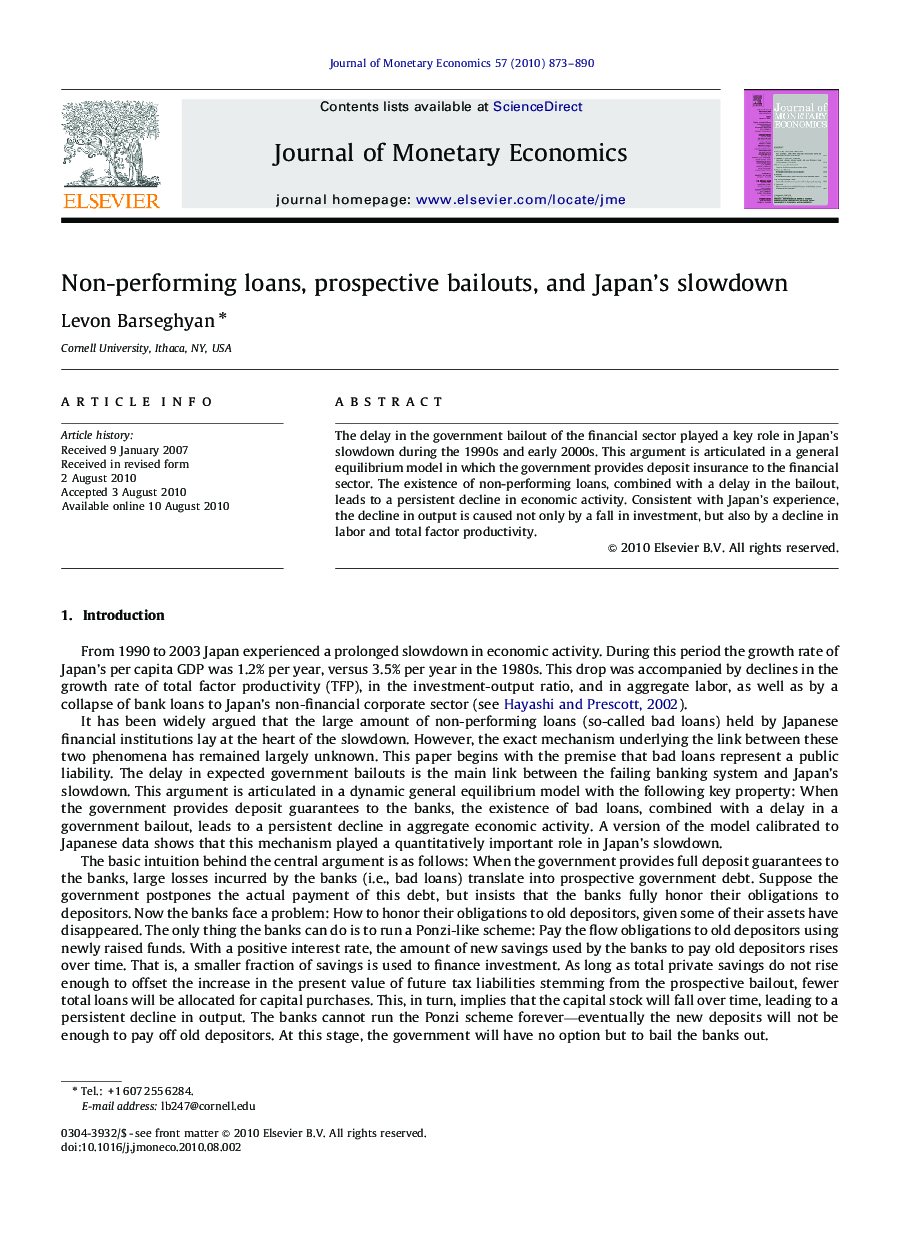| Article ID | Journal | Published Year | Pages | File Type |
|---|---|---|---|---|
| 967035 | Journal of Monetary Economics | 2010 | 18 Pages |
Abstract
The delay in the government bailout of the financial sector played a key role in Japan's slowdown during the 1990s and early 2000s. This argument is articulated in a general equilibrium model in which the government provides deposit insurance to the financial sector. The existence of non-performing loans, combined with a delay in the bailout, leads to a persistent decline in economic activity. Consistent with Japan's experience, the decline in output is caused not only by a fall in investment, but also by a decline in labor and total factor productivity.
Related Topics
Social Sciences and Humanities
Economics, Econometrics and Finance
Economics and Econometrics
Authors
Levon Barseghyan,
